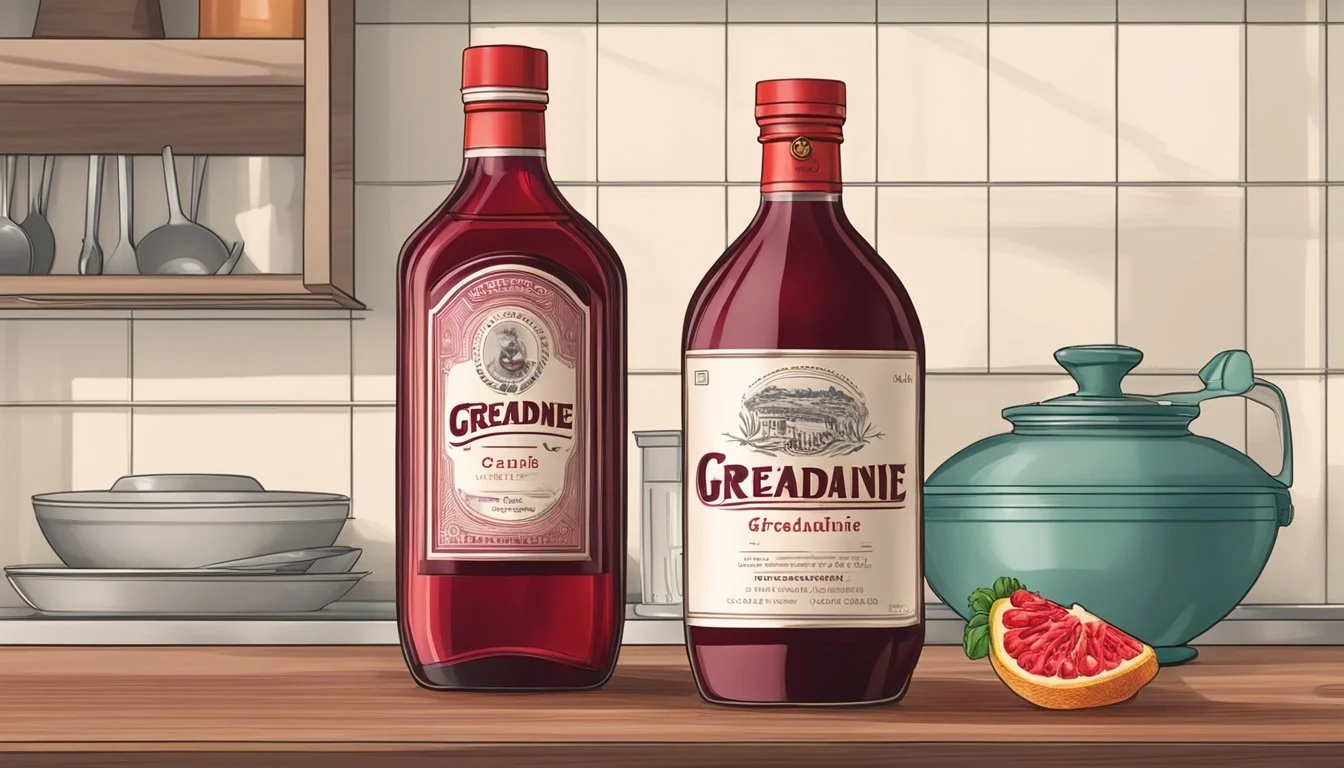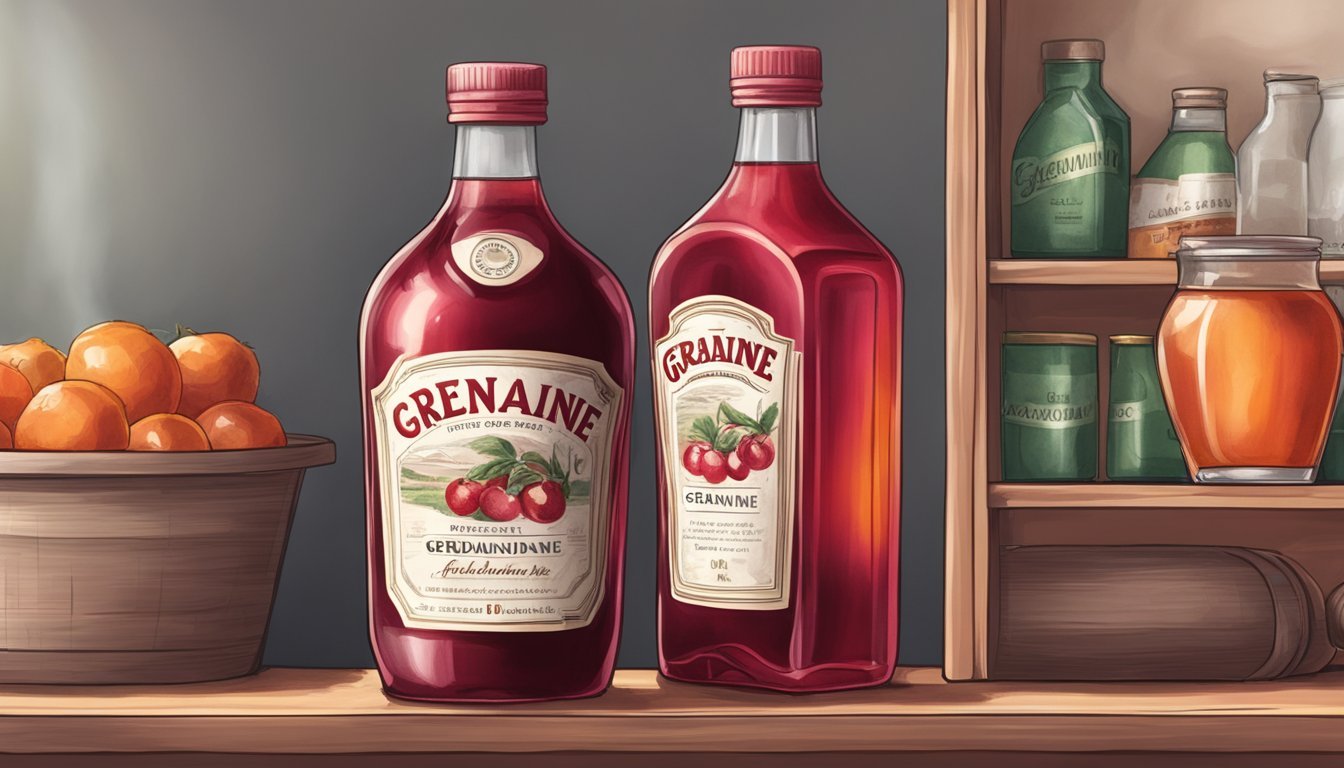Does Grenadine Go Bad?
Understanding Shelf Life and Storage Tips
Grenadine is a non-alcoholic syrup commonly used to add a splash of color and a touch of sweetness to various cocktails and beverages. Its vibrant red hue and subtly tart flavor, derived mainly from pomegranate juice, make it an essential ingredient in bars and household kitchens alike. While grenadine’s high sugar content acts as a natural preservative, it's important for consumers to know whether this popular syrup has the potential to spoil, and if so, under what conditions and time frame.
The shelf life of grenadine can depend greatly on its composition, whether it is made with real fruit juice or artificial ingredients. Artificially flavored grenadine tends to have a longer shelf life compared to its naturally flavored counterparts. Moreover, storage conditions play a critical role; an unopened bottle of grenadine can last on the pantry shelf for a couple of years, provided it's kept in a cool, dry place away from direct sunlight and heat.
Once opened, grenadine's longevity is reduced, and the syrup is more susceptible to potential spoilage. However, even then, when stored properly at room temperature with a tightly sealed cap, it can remain good for use for several months. Refrigeration after opening is not mandatory but is recommended to extend its shelf life. Proper handling and storage are key to maintaining the quality and safety of grenadine for its optimal use in both alcoholic and non-alcoholic beverages.
Understanding Grenadine
Grenadine is a versatile syrup with a rich history, commonly recognized for its role in mixology. Its quality and flavor profile vary significantly between commercial brands and homemade versions, with a range of applications in both cocktails and mocktails.
Origin and Ingredients
Originally derived from pomegranates, the name "grenadine" originates from the French word "grenade," which means pomegranate. Traditional grenadine is a sweet and tart syrup made primarily from pomegranate juice and sugar, often enhanced with citric acid for a balance in flavor. Some authentic recipes also include pomegranate molasses and orange flower water, contributing to its distinctive taste.
Commercial vs. Homemade
Commercial grenadines widely differ from homemade varieties. Store-bought grenadine might contain high fructose corn syrup or corn syrup as sweeteners, as well as artificial ingredients, such as artificial flavor and preservatives. In contrast, homemade grenadine typically relies on natural ingredients, using real pomegranate juice and sugar as the base. This provides a more authentic and potentially healthier alternative to off-the-shelf options.
Commercial Grenadine Homemade Grenadine Base High fructose corn syrup, Corn syrup Real pomegranate juice Sweeteners Artificial flavors, sugar substitutes Natural sugar Additives Preservatives, artificial ingredients Orange flower water, Pomegranate molasses Flavor Often synthetic Natural and authentic
Culinary Uses
Grenadine is primarily used as a mixer in cocktail and mocktail recipes. It adds a vibrant red color and sweet, fruity flavor to drinks. Classic cocktails such as the Tequila Sunrise and Shirley Temple are well-known for their use of grenadine. Beyond its mixology applications, grenadine can also be used to sweeten lemonades, smoothies, and desserts. The homemade version, with its richer pomegranate flavor, adds depth to recipes that can elevate the taste experience.
Shelf Life and Signs of Spoilage
The stability of grenadine's quality is subject to proper storage and awareness of its shelf life. Recognizing signs of spoilage is crucial to ensure food safety.
Determining Expiration
To ascertain grenadine's expiration, always check the label for a best-by date. While not an exact expiration date, the best-by date provides a guideline for when the product may start to decline in quality.
Storing Unopened Bottles
Unopened grenadine can last for 2-3 years when stored in a cool and dry place such as a pantry. The storage conditions should ensure the bottle remains sealed and away from direct heat and light to maintain quality.
After Opening: Proper Storage
Once opened, grenadine should be kept in the refrigerator, where it can last for 3 to 6 months. Usage of a pump capper with opened grenadine can reduce this time to 1 to 2 months due to potential contamination.
Recognizing Spoilage
Be vigilant for changes in odor, color, appearance, and consistency. An off smell, cloudy appearance, or any mold growth on the syrup or around the cap are clear signs that the grenadine should be discarded.
Food Safety Concerns
If spoilage is suspected, it's safer to err on the side of caution and discard the grenadine to avoid potential food safety issues. Consuming spoiled grenadine can be harmful to one's health.




